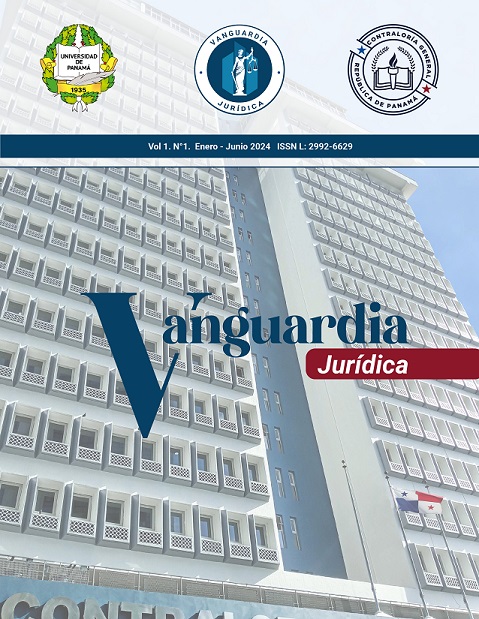

Copyright (c) 2024 Vanguardia Jurídica

This work is licensed under a Creative Commons Attribution-NonCommercial-ShareAlike 4.0 International License.
The essay "Exclusion of the Servants of the Office of the Comptrollers as Management Employees in Law 351 of 2022, with control functions" its objective is to present a legal analysis of the figure of the management employee and the reasons why the exclusion of the servants with control functions of the Comptroller General of the Republic from such category made by Law 351 of 2022, by modifying numeral 2 of article 11 of Law 32 of 1984 and adding a paragraph to article 2 of Law 67 of 2008, is constitutional.
The Political Constitution of the Republic of Panama, this being our supreme norm, establishes in its article 280, the exclusive functions assigned to the Comptroller General of
the Republic, such as the supervisory function and the comptroller function, on the acts of fiscal impact that they issue public sector entities empowered to do so.
In effect, these are separate and delimited missions and functions, by public entities that fulfil an administrative purpose, based on reasons of necessity and effectiveness of the service that, by legal mandate, they are responsible for providing to the community, and on the other hand, we have the Superior Supervisory Body in charge of ensuring, through external control, that those administrative actions carried out by management employees, aimed at affecting public assets, are carried out correctly and are subordinated to the Constitution and the law.
This study with significant importance in our environment, allows us to highlight with reflective serenity that of the constitutional norm, it can be reaffirmed that the work of the public servant of the Comptroller General of the Republic, in the exercise of the functions of inspection and control, it is not the same with respect to the tasks of those who do act as management employees within the mechanism for the proper functioning, whether of other public entities or of the same entity, in eminently administrative functions, we talk about receiving, managing, administering, investing, guard, care for, approve, or pay for public funds and goods.